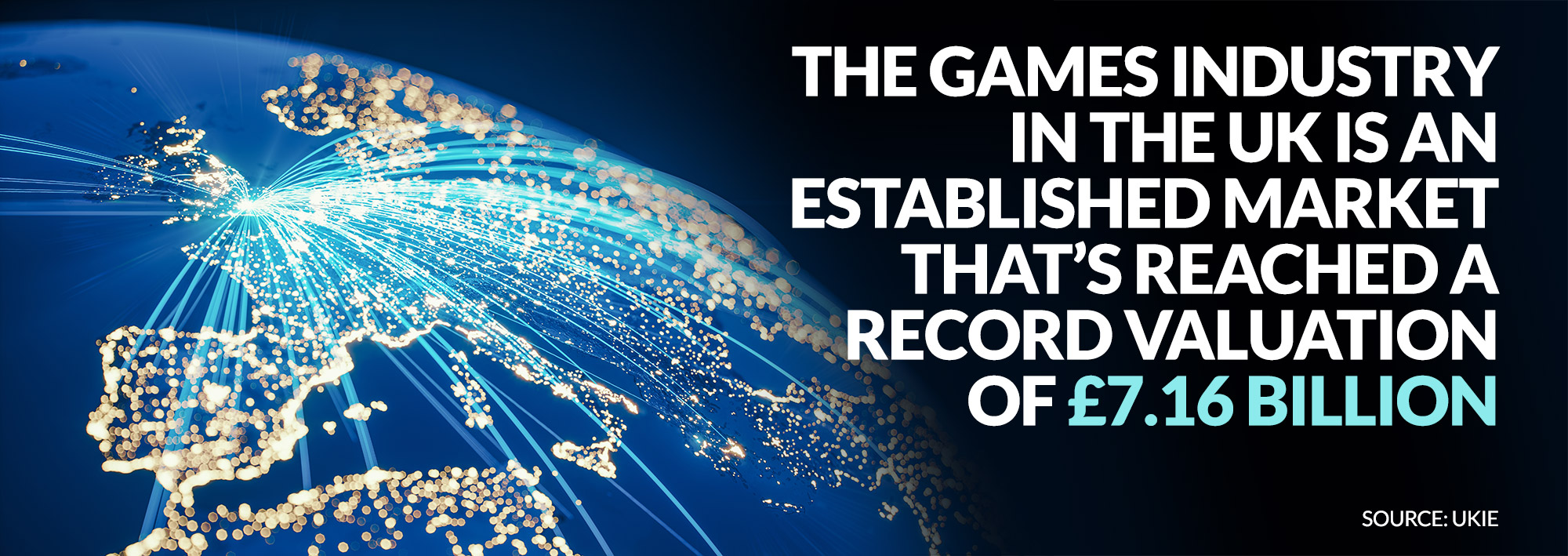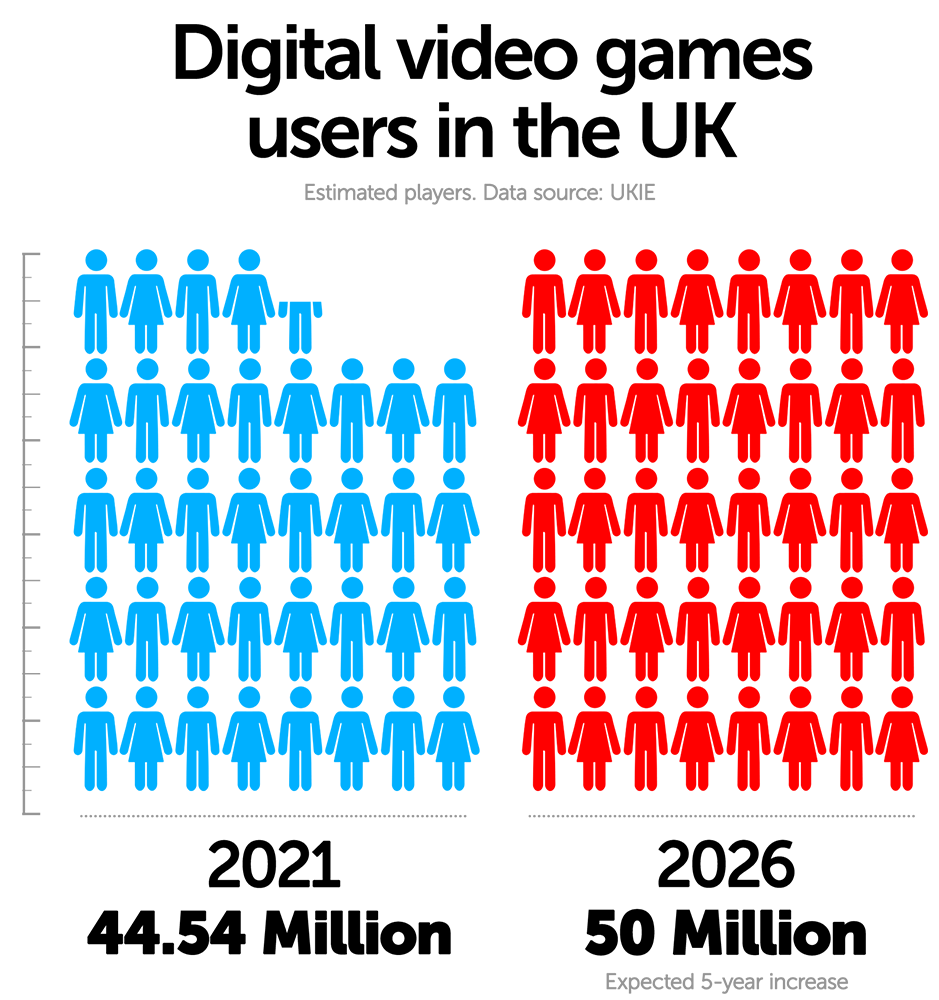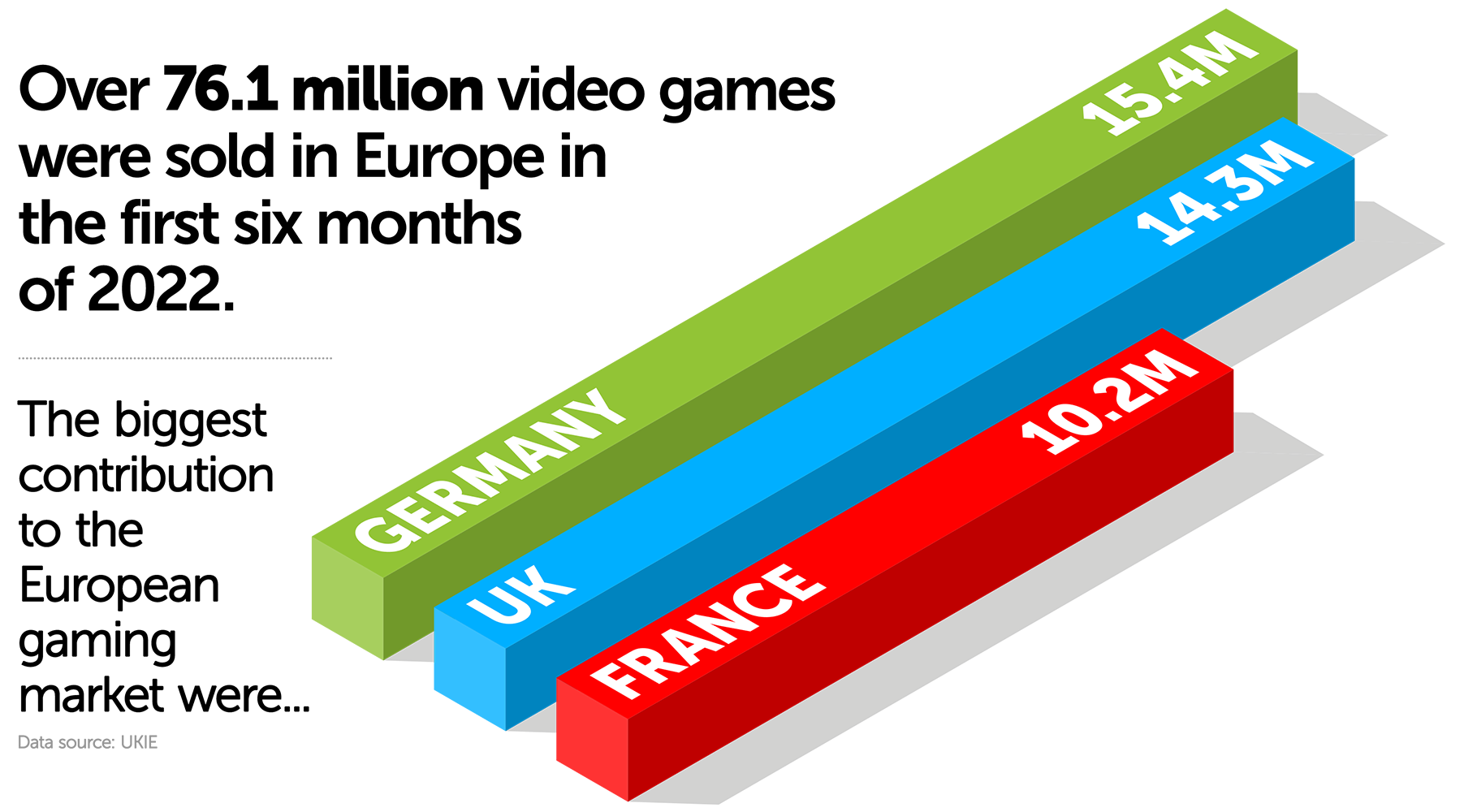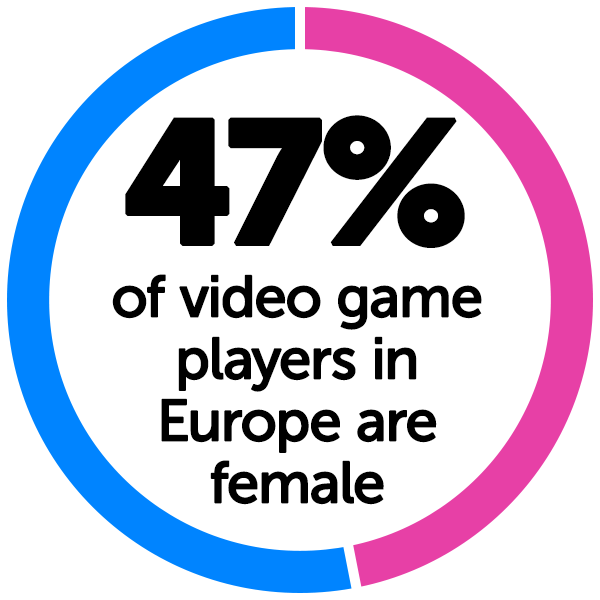
The games industry in the UK is an established market that’s reached a record valuation of £7.16 billion in 2021, growing by 1.90% from the height of the pandemic numbers back in 2020 as reported by Ukie, the trade association for the UK’s games and interactive entertainment industry.
For context, the pandemic boomed the market growth in 2020 compared to 2019, and today, it’s up 32.8% compared to 2019, mostly based on healthy hardware sales, which had a growth of 17.4% year-on-year and reached an impressive £2.66 billion. This market growth is incredible, as reaching a record high in market valuation after the height of the pandemic is no easy feat considering how many people turned to gaming while stuck indoors – the booming growth appears to be here to stay.
The only category of software sales that did not decline in the past year was mobile games, holding strong at a worth of a whopping £1.46 billion and showing immense promise for the future.
“The UK is a nation that loves its video games…”
A difference between 2020 and 2021 was a drop in consumer spending on the games themselves, it decreased 6% compared with 2020 – this is attributed to the lack of games tailored to the latest technology, and there’s hope for a significant increase in games sales figures with upcoming exciting releases such as Elden Ring, Starfield and Harry Potter: Hogwarts Legacy. The only category of software sales that did not decline in the past year was mobile games, holding strong at a worth of a whopping £1.46 billion and showing immense promise for the future.
Ukie CEO Dr Jo Twist OBE reported that: “The UK consumer games market has consolidated effectively following significant growth during the COVID-19 pandemic. The UK is a nation that loves its video games and we should be proud of the positive contribution this sector makes to the economy, to our culture and to wider society.”
Looking to the future, the growth is estimated to continue! The market size is expected to increase by 6.5% in 2022, and shows no signs of slowing down any time soon. The number of digital video games users in the UK in 2021 was 44.54 million, and it’s expected to increase to nearly 50 million within the next five years, a jump of 23.09%.
You can dive deeper into the UK market on Ukie’s official website.



The growth of the European games market
Taking a look at the European video games market as a whole, the segment is expected to reach a whopping £19.59 billion in 2022 with an expected year-on-year growth rate of 5.74%. Within the next five years, the projected market volume is expected to reach £25.9 billion and the number of users is expected to hit 345.7 million. The latest segment in the European video games market is mobile gaming, with a market volume of £12.42 billion in 2022. The sales in Europe keep growing substantially as well, with over 76.1 million video games sold in Europe in the first six months of 2022 (a 13.5% increase from the same period last year). Of these numbers, the countries with the biggest contribution to the European gaming market were Germany with almost 15.4 million games sold, the UK with 14.3 million and France with 10.2 million.
The latest segment in the European video games market is mobile gaming, with a market volume of £12.42 billion in 2022.
In Europe, 50% of the population between the ages of 6 to 64 play video games. There’s no one-size-fits-all definition of gamer in Europe, and this is a massive point of opportunity to tap into diverse demographics. 47% of European video game players are women, with 32 years old being the average age of female players.
There’s recent news about the members of Parliament voting to bolster investment in the European gaming industry, with a resolution that calls on the European Commission and Council for a larger investment in the European games industry. This is an active effort to support the Esports and gaming sectors, including developers, Esports initiatives and players themselves. They also requested the creation of a long-term plan to develop and retain gaming talent. This comes after a pre-vote in March stating the market should be recognised for its growth and innovation potential. This resolution has the potential to be a massive point of growth and expansion for the European games industry, as well as emphasising the value that Europe recognises in the industry. As noted by Parliament member Laurence Farreng, “Gaming has become a vital part of cultural life for half of Europeans. Yet, we still don’t have an European vision for the industry.”
